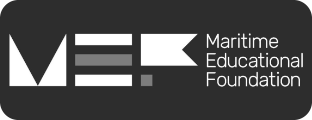Coming Ashore Podcast Episode 8 – About the Mentor Jeffrey Blum
Posted on 18 May 2020 by Andrew Cowderoy
On Episode 8 of the Coming Ashore podcast, Andrew Cowderoy is joined by Coming Ashore mentor Jeffrey Blum.
Would you rather listen? Listen on Spotify and ITunes. Or watch on Youtube.
Click here to find out more about the Coming Ashore programme. Where you'll find professional guidance, mentorship and work experience opportunities for transitioning to a career on land.
Andrew Cowderoy:
Hello ladies and gentlemen and welcome to another episode of the Coming Ashore podcast by the Marine Society. My name is Andrew Cowdery, and on today's episode I'd like to welcome a friend, a colleague and a mentor on the program.
The man is Jeffery Blum. He's had an extremely exciting and interesting career in the industry, an extensive heritage within shipping too, much like ourselves. So, thank you very much Jeffrey for joining us.
Jeffrey Blum:
You're very welcome. I'm delighted to be part of this.
Andrew Cowderoy:
And to get us kicked of, Jeffrey, if you wouldn't mind sharing with our colleagues, the seafarers listening to this around the world, or our maritime professionals stuck at home during the lockdown, what was it that first got you into the maritime industry? Was it a family connection as I alluded to in the introduction? Can you just explain that first step into the maritime and shipping industry?
Jeffrey Blum:
Yes, indeed, Andrew. I'm very lucky. I was born into a shipping family, forwarding and logistics, and then shipbroking and operating, a company started by my great grandfather in 1875, and I'm therefore the fourth generation.
I started in shipping with my father and grandfather in 1973, and I've been gripped by it and never bored one single day in the 47 years since I started. I've been involved in marine insurance, both as an underwriter at Lloyd's and also as a marine insurance broker.
I've worked in central European freight forwarding and logistics, both by road, rail, air and sea, including Rhine barges. I went to work after that in Hamburg and worked for some very well-known large ship owners for a while. Learned about crewing and managing and operating ships.
And then came back to the UK, worked for my father, for the company. And he quite rightly said that I should start from the bottom up, not quite licking stamps but certainly answering the telephone, sorting out telexes, and everything that was really basic so that I could understand the bottom of the pile before I started moving up the pile.
And that I think was very wise of him to put me in that position because otherwise some of the long term staff who'd been with us for years, might resent the fact that the son of the boss comes in and immediately takes over. So, he insisted... and I think he was quite right to do so, that I should really start at the bottom and work up. Therefore, my knowledge of the trade is from the basics upwards. And I think that's been most helpful in my career.
Having finished my time in Hamburg with the shipowners, I came back to London, to the family firm, and at same time started evening classes with the Institute of Chartered Shipbrokers to become what used to be called and Associate, nowadays a Member, after two years of exams. Then the third and fourth year, unusually I managed to squeeze in, with a lot of hard work, into one year for my fellowship. My examination I finished in 1979 and qualified as a Fellow.
I've been very much involved with the Institute of Chartered Shipbrokers since 1983, on various international councils, Chairman of the London branch and so on, but I've also been teaching for the Institute at a number of institutions and colleges and universities and bespoke training for the Institute around the world since 1984.
Having moved back to Switzerland in 1980, just after I qualified as a Fellow, I worked for six years for a very large well-known commodities trading company on the trading and also on the ship chartering side as an in-house broker and involved in all the claims, which also led me to know a lot about maritime law and to speak to a lot of law firms who were representing their clients in their claims against shipowners. So, I became quite interested in, and people say quite good at, maritime claims. I did that for six years.
I then joined a very large ship operating company, one of the largest fleets in the world, operating ships. When I joined there were about 103/104 of them. When I left about a year and a half later they were already 120. They now have about 400 on that fleet, they're pretty big.
And I then became a gas or a futures broker, by invitation, for two and a half years. And then in 1989 I went solo, acting as a claims consultant for a number of trading operators and shipowners and ship operators.
I did a lot of work for about four years for the United nations peacekeeping forces. That was very much logistics; road, rail, air, helicopter, barge and sea, to the UN Blue Beret holiday destinations at the time, which were Cambodia, Somalia, Haiti and Kosovo, all at the same time. So, we were fairly busy, you may imagine.
And in 1994 I applied for and was accepted by the LMAA, the London Maritime Arbitrators Association, to go onto their panel as an arbitrator. And I've been doing that ever since. I've been an expert witness for arbitration and court cases since 1983.
In 1994 I started my own maritime claims and training company and have used it all around the world to train people either bespoke or in public courses or at Universities and Colleges. And I started my own private College for shipping in 2002 in London. But we provide tuition all over the world for that.
I can repeat that I have never been bored in 47 years. No two days have ever been the same. There's always something new, either legal or economic or political or technical, there's always something new. I find this industry fascinating.
I'm very happy to be able to help by mentoring those who want to come ashore to see the fascination of this whilst they are ashore rather than the excitement of being at sea.
Andrew Cowderoy:
I already knew you had an extremely exciting career history, Jeffery, but that opened my eyes even more. I think you've touched on almost every sector within the maritime industry in what is an extremely exciting career, and a true expert, without a shadow of a doubt, of the maritime industry.
Now you did the ICS, Institute of Chartered Shipbrokers exams?
What qualifications, apart from knowing the industry and growing up and starting from the bottom, what other qualifications did you have joining the maritime industry when you just first started to kick into the industry?
Jeffrey Blum:
I do not have a University degree although I have studied law and I have been teaching it, but I am not a lawyer. I'm not a qualified solicitor or barrister. I cannot and do not wish to call myself a lawyer, which has its huge advantages, because I've been appointed as an arbitrator for many years precisely because I'm not a lawyer. Because I come to a problem with a purely commercial background.
Of course, I understand quite a lot of the law but I don't pretend to be a lawyer. And that's why parties appoint me, because of the commercial experience that I have and I can see some of the wood, the twigs or branches on the trees rather than just the overall picture, which lawyers occasionally use with their peripheral vision. Or the alternative; I see the bigger commercial picture whereas lawyers may occasionally only see the twig or the branch.
To answer your other question, I learned at my father's knee and in the family firm as a boy and then when I grew up of course, and also took the Fellowship of the Chartered Institute of Arbitrators. I did evening classes for a whole year, every week, and then took those exams and therefore became a Fellow, that was in 1997, having been granted associateship of the Chartered Institute of Arbitrators, honorarily because of the strength, the level of my law paper for the Institute of Chartered Shipbrokers back in 1978/79. And because I did quite well in that, they gave me Honorary Associateship of the Chartered Institute of Arbitrators.
When you and I first met, Andrew, you may recall that we were at an event on HQS Wellington and there was some talk by other people that you, coming ashore as you had, ought to have a degree in order to be able to progress. At which point I cheekily stood up and said, "No, you don't."
Just looking at my own experience, I do not have a University degree, but I've been teaching at Universities and I'm a visiting professor at two Universities, one in Malmo, the World Maritime University, and one in Shanghai, and I've been doing that every year since 2007. So, you don't need to have a degree in order to become a visiting professor or a professional within this fascinating industry. I hope that answers your question.
Andrew Cowderoy:
Absolutely. It just goes to show, as you've said extremely clearly and as we both preach and share, one does not need a degree. And for those who are listening, it's very clear in Jeffrey's vast experience, don't be put off by any role within the industry. If you're interested in almost any sector, don't be put off with, "I don't have a degree or I don't have the right qualification."
I think what Jeffery's proven in his entire career is, if you want something, if you want a career, if you're interested in a sector, there is a way of doing it and there's a way of getting there without going through perhaps what one may call the more traditional path of going to University and getting a degree.
Jeffrey Blum:
Quite right. And if I may add a little bit, having a mentor is a bit like being an apprentice, in that you have somebody who will show you the ropes both physically and metaphorically, who may not employ you.
My apprenticeship was in the family firm of course. And then I was shown the ropes in other companies, friends of my father, who were in a different area such as Rhine barge operating and ship-owning and so on, with containers and gas carriers and tankers and dry bulk and heavy-lift project work and so forth. So that was a very, very good learning curve without going to college to learn for a degree.
That said, my College work was evening classes for the Institute of Chartered Shipbrokers courses. So, I was actually doing mix and match. I was learning in the evening and putting it into practice during the day.
Andrew Cowderoy:
Yep. And correct me, the ICS, the Arbitrators and the other qualifications can be studied whilst you're at sea?
Jeffrey Blum:
Yes, absolutely.
Andrew Cowderoy:
And if somebody needs support, how would they get that support to make sure that they are ticking all the right boxes and doing it right? Is the establishment there to support them to do that at sea?
Jeffrey Blum:
There is. Yes, it is indeed there to support them. It depends on how they wish to learn for their Institute of Chartered Shipbrokers qualifications. There are a few ways through the Institute and a few ways independent of the Institute.
So, for example, if somebody at sea wishes to take what is called tutorship, which is the Institute's own correspondence course, the tutor will literally correspond with the student. There are 10 chapters in a textbook per subject; there are 16 subjects. And the tutor will, as I said, correspond with the student who will presumably read and absorb each chapter of the textbook of that subject and then correspond with his or her tutor, receive correspondence, and therefore answers to the questions, and thereby learn, although not literally sitting next to or following whatever that tutor may do in an office situation.
There are alternative methods other than going through the Institute's own tutorship; Colleges, Private Colleges such as mine, but there are also others.
And I like to think also with this Marine Society mentoring sessions that we are putting in place, it may be that somebody wants to come ashore but is not yet ready or able to do so for the next six or nine or 12 months, and therefore the mentoring could perhaps have benefits whilst he or she is at sea, and will then be in a strong position when he or she comes ashore.
Andrew Cowderoy:
So, the Institute of Chartered Shipbrokers; if I'm somebody listening to that, that to me would say that's becoming a shipbroker strictly, but it's not the case, is it? Can you elaborate on what the ICS ticket stands for and where it could perhaps be used across the industry?
Jeffrey Blum:
Okay, that's a great question. Thank you.
Strictly speaking, the Institute's full name is the Institute of Chartered Shipbrokers and Port Agents. So, it is those who are involved in broking ships and cargoes, and those who are involved in port to look after those ships and cargoes in a very practical way. It is also the only international, therefore global, professional qualification for those involved in anything to do with the commercial running of ships.
By commercial running, I mean those who might be shipowners or ship operators or charterers, and therefore working for trading companies, or the brokers who work specifically and exclusively for those owners or charterers, or perhaps they are what we call competitive brokers; a bit like a sophisticated marriage bureau, who find the perfect match between ship and cargo, or port agents, or those who are involved with law, with banking and with any other aspects of commerce in which shipping and trading may well have a role to play. And those people such as bankers and lawyers can equally have qualifications as a Fellow or a Member, to start with, of the Institute of Chartered Shipbrokers.
It is, as I said, the global qualification by which you are recognized as being somebody who is professional.
Andrew Cowderoy:
Great answer. Moving on to the mentorship side of the program. You mentioned a few times how to mentor and that side of things. Can you elaborate on more of the experience that you've had as a mentor supporting professionals throughout their career development right up unto today?
Jeffrey Blum:
Yes, certainly. Having been a lecturer, teacher, mentor in that sense, since 1984, a lot of students have gone through my hands, as you may imagine, both here in London and elsewhere in the UK, quite a few places in the UK, and also abroad.
Many of the students like to keep in touch, which is great, and I meet them at various physical networking events and also conferences and so on, both social and academic. Some of them have asked for my opinion because they may want to move jobs, move to another part of the industry, maybe move from being an owner to a charterer or pure broking or port agency or surveying or maritime engineering or anything else that they may want to try, and they asked my opinion. So, in that sense I'm mentoring them. I don't know the first thing about surveying, but I know people who do, and likewise engineering.
So, I find that my former students, going back many years, many of whom are now in rather senior positions both in their companies and or globally, in very, very senior positions, in major worldwide institutions such as BIMCO for example. The current president of BIMCO is a former student of mine from 1990. She was in London. She's Turkish. Her name is Sadan Kaptanoglu. She comes from a very good Turkish ship-owning family. She came to London as the new President and the first ever female President of BIMCO.
During last September's London International Shipping Week, LISW, which takes place here in London every four year, she was giving a talk. And I made sure that I was there to greet her afterwards, and she threw her arms around me and said, "Jeffrey, how lovely to see you. Look everybody, this is the man who taught me what I know," which was lovely and very gratifying and so forth.
The point that I'm trying to make is not how wonderful I am. That's not the point at all. But the people who remember their teachers... and you may remember this from school for example, as I do for my school, the good teachers will stay with you in your mind and you will perhaps want to be able to look up to them or ask them for some opinion later on. The president of BIMCO remembers Jeffrey Blum.
Again, I'm not saying how wonderful I am. That is not the point, but that's a form of mentoring. And even somebody as senior as she is now and others in similar positions, will keep coming back and networking. And I think that's important.
Andrew Cowderoy:
I think you've touched on a couple of points. And I'm aware of time. One thing is very prominent in all the episodes we record. And that last statement of the president of BIMCO running up and giving you a warm hug is... It can be often from the outside perhaps, shipping is a scary place. But it's quite the opposite. It's an extremely friendly, caring one where people are genuinely willing to help if you have a question. Say, "Hey Jefferey, Hey Andrew, Hey Bob, Joe, Sandra," whomever. "I fancy a cup of tea. I'd love to learn about what you do." In most cases, most people will say, "Yes."
Jeffrey Blum:
Absolutely. Agree.
Andrew Cowderoy:
Again, just very wary on time. How important has the network been that you've developed over the years? And relate that to somebody who is perhaps looking at coming ashore and why one should perhaps be investing time, effort to develop their own personal network?
Jeffrey Blum:
Great question. Thank you, Andrew. I think the personal networking that some people who are currently at sea may already have developed without even realizing it will be with their own colleagues on board, who will eventually presumably also go ashore back to their home countries. Maybe not the same country as, let's say, Fred who is going to be my mentee, just for example. And Fred would already know some people in different countries and will know how they tick because they've lived together on board for X months.
And perhaps through my mentoring, I may introduce him to some people I know who have similar experience to his. And from there his own network will start to grow. I may also introduce him either physically if we're in the same city or otherwise through my own network of people around the world, that he... I'm using Fred only as a name of course, might go to some other events elsewhere in whichever city he resides, and immediately then be welcomed by the very friendly fraternity that is shipping. And I don't say just shipbroking. I say shipping.
I'm very friendly with owners, with charterers, with brokers, with all sorts of people within our very large industry globally, and that's great. I have a network I've built up over many, many years, and there are still lots of people I would love to meet. And I therefore want to know what they do through my network. I'm learning just as much as anybody else. I don't pretend to know everything just because I've been in the business for 47 years.
Andrew Cowderoy:
Absolutely, and great answer. And if you were to give two or three bits of advice to somebody looking to come ashore in the next year, next six months, next two years, what can they do at sea today to prepare for that career change?
Jeffrey Blum:
Okay. I would suggest first things first. Know yourself and know what your strengths are and play to your strengths. If you happen to be an engineer at sea, that may be where you want to continue in your career ashore. You may on the other hand be fed up with engineering and want to go into the commercial world. Fine, in which case you could perhaps, if you're a second engineer for example, speak to your colleague, the second deck officer, and find out what it is that the commercial side of shipping does from his perspective at sea. That might give you more of an insight into commerce rather than science, engineering and so on.
If you feel that you want to carry on with whatever your strength may be, and if you happen to have a few languages, that would help. And if you happen to be good with people rather than good with bits of machinery, then you already know where your interest might lie when you come ashore.
The second thing I would say is there are quite a few very good companies, and I can introduce Fred or whomever to them, who would give guidance on career prospects. I do not mean recruitment agencies, although they of course can help as well, but other psychological tests that can be given and undertaken by Fred and so forth, to find out where their true strengths really lie. It may be that it's something quite different. They may be brilliant say, purchase brokers in the hiding, and they've never even thought of that, but they may be fabulous at it.
So, talking to a mentor and talking to a professional in that other sense. In other words, somebody with a real skill of career advice... and again I don't only mean recruitment agents, might be something else which somebody at sea could perhaps investigate via online or with help from a mentor before he or she comes ashore.
Andrew Cowderoy:
Thank you very much for that. Some fantastic advice, and thank you for taking part in the podcast, for supporting the seafarers who are coming ashore.
If you've enjoyed the podcast, if you've enjoyed hearing what is only a brief snapshot of Jeffery's vast experience... We could spend hours talking about shipping and the industry but we won't bore you with that here, but perhaps bore you in a private conversation as part of the coming ashore.
Jeffrey Blum:
I hope not boring. But if anybody's listening who would like to know more from me, I'm quite sure that you can get hold of me through Andrew. And I'd be happy to talk to anybody either in a group or one-to-one, either recorded from when you're at sea, and I can send a recording by way of reply, or some kind of an internet connection through Skype or WhatsApp or whatever. I'll leave that up to Andrew how best to organize it.
But let me just say before I close that this has been a pleasure and an honour for me to be part of this, to be invited to be part of it, and my metaphorical door is open to you.
Andrew Cowderoy:
Thank you very much, Jeffrey. And I didn't mean bore because obviously shipping's an extremely exciting industry that surprises us both daily. This morning I started off thinking it was a busy day and it got busier tenfold within about two hours.
So, keep your eyes open, have the conversation, speak to the people. We live in extremely exciting times despite everything that's going on in the world. It's time for reinvention and shipping... correct me if I'm wrong, Jeffery, is typically a cyclical industry. We have our highs and lows. And when we're in our lows, which we are in the world today, it's where some of the truest innovation, excitement comes out. And you don't need to look very far to see where that's happened.
So, don't think of the time that we live in as a "Oh dear, there's not a career, a job for me on shore." Think again. It's an extremely exciting time. It may take a week or two from the time of recording for the world to start to settle a bit into perhaps what is the new normal. But it is a time for reinvention, innovation and excitement in what is probably one of the greatest and most important industries in the world. And that is not just shipping but the greater maritime industry.
So, thank you very much, Jeffrey, for joining us. And thank you all of those who are listening. If you're interested in speaking with Jeffrey more, being part of the program, please visit the Marine Society's website, register as part of the program, and we'll welcome you with warm arms into the private networking group where you get to meet all the fabulous mentees and mentors and start your career change and look towards a career onshore.
This podcast was presented by the Marine Society. If you want to find out more about the coming ashore project, be sure to subscribe to the channels podcast on YouTube, Spotify, iTunes. Visit us on Instagram, Twitter, Facebook, LinkedIn, or visit the Marine Society website.
For more information on the Marine Society's Coming Ashore program, including information on mentorship, please visit our Coming Ashore page.





